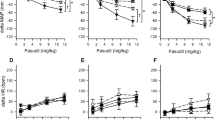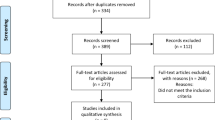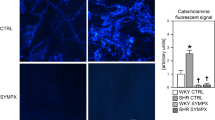Abstract
DIURETIC drugs of the benzothiadiazide type such as chlorothiazide and hydrochlorothiazide will cause a fall in both systolic and diastolic blood pressure in some cases of hypertension1–4. The mechanism by which these diuretic agents produce a fall in blood pressure has not, however, been elucidated. Tapia, Dustan, Schneckloth, Corcoran and Page5 and Dustan, Cumming, Corcoran and Page6 have suggested that this hypotensive activity is due to potassium depletion and a reduction of blood volume. In contrast, Hollander, Chabanian and Wilkins7 state that there must be an additional mechanism as well as the effects on electrolyte balance. Possibly one of the reasons why the mechanism of hypotensive activity of these drugs has not been elucidated is that they do not cause a fall in arterial pressure in the anæsthetized animal8–10. For example, no hypotensive effect was produced by hydrochlorothiazide in the normal dog under pentobarbitone8 or in the neurogenic hypertensive dog under chloralose anæsthesia10. We feel, therefore, that it may be of interest to report that both hydrochlorothiazide and a new non-benzothiazide diuretic clorexolone11,12 produce a reduction of arterial pressure of the conscious normotensive dog.
This is a preview of subscription content, access via your institution
Access options
Subscribe to this journal
Receive 51 print issues and online access
$199.00 per year
only $3.90 per issue
Buy this article
- Purchase on Springer Link
- Instant access to full article PDF
Prices may be subject to local taxes which are calculated during checkout
Similar content being viewed by others
References
Smirk, R. H., McQueen, E. G., and Morrison, R. B. I., Brit. Med. J., i, 515 (1960).
Cranston, W. I., Juel-Jensen, B. E., Semmence, A. M., Handfield Jones, R. P. C., Forbes, J. A., and Mutch, L. M. M., Lancet, ii, 966 (1963).
Hall, R., and Owen, S. G., Lancet, i, 129 (1959).
Cranston, W. I., and Juel-Jensen, B. E., Lancet, i, 1161 (1962).
Tapia, F. A., Dustan, H. P., Schneckloth, R. A., Corcoran, A. C., and Page, I. H., Lancet, ii, 381 (1957).
Dustan, H. P., Cumming, G. R., Corcoran, A. C., and Page, I. H., Circulation, 19, 360 (1959).
Hollander, W., Chabanian, A. V., and Wilkins, R. W., Ann. N.Y. Acad. Sci., 88, 975 (1960).
Barrett, W. E., Rutledge, R. A., Sheppard, H., and Plummer, A.J., Toxicol. App. Pharmacol., 1, 333 (1959).
Losse, H., and Wehmeyer, H., in Diurese and Diuretica, 313 (Springer Verlag, Berlin, 1959).
Preziosi, P., Marmo, E., and Miele, E., Arch. Int. Pharmacodyn., 131, 355 (1961).
Cornish, E. J., Lee, G. E., and Wragg, W. R., Nature, 197, 1296 (1963).
Simpson, F. O., Curr. Ther. Res., 6, 21 (1964).
Katz, L. N., Friedman, M., Robbard, S., and Weinstein, W., Amer. Heart J., 17, 334 (1939).
Zapp, J. A., in Canine Medicine, edit. by Hoskins, H. P., et al., 316 (Amer. Vet. Pub., 1959).
Author information
Authors and Affiliations
Rights and permissions
About this article
Cite this article
MAXWELL, D., MCLUSKY, J. Hypotensive Action of Hydrochlorothiazide and Clorexolone in the Conscious Normotensive Dog. Nature 202, 300–301 (1964). https://doi.org/10.1038/202300a0
Issue Date:
DOI: https://doi.org/10.1038/202300a0
Comments
By submitting a comment you agree to abide by our Terms and Community Guidelines. If you find something abusive or that does not comply with our terms or guidelines please flag it as inappropriate.



